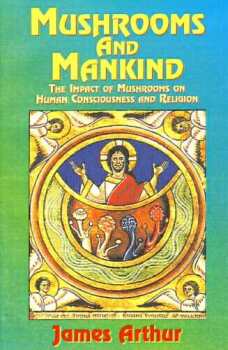Is There a God? Go Ask Alice
Saturday, March 17 2007 @ 04:22 PM CDT Views: 453

David Koepsell
A recent study conducted at Johns Hopkins sought to explain the neurological effects of psilocybin, the active ingredient in the Psilocybe genus of mushrooms.
While millions of amateur researchers have been investigating the subjective effects of so-called magic mushrooms for decades, and they've been used in Native American ritual for perhaps thousands of years, the psychopharmacological studies conducted by the researchers were intended to explore the potential therapeutic use and effect of the drug. Such studies have been conducted before, including significant studies in the sixties and seventies regarding the use of another popular compound, MDMA (3,4-methylenedioxymethamphetamine, commonly known as ecstasy), in psychotherapy. Of course, these studies have typically been frowned upon in the context of the ongoing and largely fruitless "war on drugs"-which is why, perhaps, the latest results have been cast in the light of "spirituality."
The investigators of the magic mushrooms took pains to couch their findings in the language of spirituality, describing the effects as a "full mystical experience." Researchers also noted that a good majority of the subjects used in the study described feelings of well-being that lasted for months after they ingested the drug. About a quarter of the subjects, however, experienced depression, anxiety, and other negative effects. Nonetheless, the study offers interesting promise for potential therapeutic uses of psilocybin, or at least for considerable further study. Two things are striking about this study: the language used by researchers in describing the results and the rather odd reaction from some theologians.
Naturally, the notion that mystical experiences could be chemically induced threatens those believers who insist that direct experience of a deity is not simply a brain state. Linking supernatural or spiritual events to natural causes (rather than vice versa) undermines theology. This is perhaps why, in reaction to the results of the study, some theologians felt it necessary to alert people that magic mushrooms are not the ticket to a bona fide religious experience: "All this did was stimulate that part of the human personality that produced certain feeling states and altered states of consciousness," said theologian Dave Reed, a professor at the University of Toronto. "Those are no criteria for an authentic encounter with God" (CBC News, July 12, 2006).
Of course, we are left to ponder what would qualify as an "authentic" encounter with God, given that accounts of such encounters from saints and prophets are generally as trippy as those of your average stoner. Take, for example, the words of St. Teresa of Avila, who wrote in The Interior Castle that, during her mystical experiences, the soul "is utterly dead to the things of the world, and lives solely in God . . . I do not know whether in this state she has enough life left to breathe. It seems to me she has not; or at least that if she does breathe, she is unaware of it." What did she eat for lunch, do you suppose?
In fact, mystical experiences are not uncommon. The naturalist philosopher/psychologist William James described some common elements such experiences often share. He was also known to induce them chemically in experiments on himself. The common elements he noticed were: (1) ineffability: they involve emotive rather than intellectual components and are difficult to describe or understand; (2) noetic quality: they involve a transcendence of time and space; (3) transiency: they ebb and flow quickly and cannot be held onto for long; and finally (4) passivity: the experiencer is overcome, swept up in the state beyond control and beyond exertion of his or her will.
Neuroscience has actually shown a number of ways in which these experiences can be induced, including by electromagnetic fields and low-oxygen environments, in connection with which near-death experiences are also routinely noted. It is thus surprising that the scientists associated with the study felt compelled to back off any conclusions regarding the applicability of their study to a scientific understanding of the weight of the evidence for the existence of God based upon chemically induced mystical experiences: "We're just measuring what can be observed," said Roland Griffiths . . . who led the study. "We're not entering into 'Does God exist or not exist.' This work can't and won't go there" (CBC News, ibid.).
In fact, isn't one of the obvious conclusions of this and similar studies that mystical experiences are chemically or environmentally induced brain states and that no alleged encounter with God can be deemed any more or less authentic than ones brought about by hallucinogenic drugs or a lack of oxygen to the brain? A fair and honest path of further exploration, based upon this and other similar studies, would be to delve into the neurochemical basis for all mystical experiences, even so-called authentic ones, rather than to dismiss automatically, without such study, the potential that all experiences of this sort arise from brain states.
What seems likely at this stage, because of the potential of such studies to undermine traditional mystical theology and our nation's aversion to legitimizing therapeutic uses of drugs that are commonly abused, nothing further will come of this study, despite its interesting promise. In the meantime, we should feel comfortable with some preliminary confirmation of a thesis many of us hold: that mystical experiences do in fact occur, that they are completely naturalistically based, and that there is no basis to view those occurring in convents or seminaries as any more legitimate than those that occurred on the corner of Haight and Ashbury back in its heyday.
David Koepsell is the executive director of the Council for Secular Humanism and an assistant research professor at the University at Buffalo.
http://www.secularhumanism.org

http://hiddenmysteries.com/xcart/product.php?productid=16433








What's Related